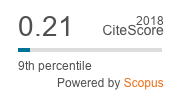A Experiência Retrospectiva De Estar Em Psicoterapia:
Um Estudo Empírico Fenomenológico
Résumé
RESUMO - É grande a controvérsia sobre a natureza e qualidade dos resultados psicoterapêuticos. Não se sabe, contudo, se o problema está nos resultados das psicoterapias ou no modo de avaliar estes procedimentos e seus resultados. Assim, desprezando os meios de quantificações tradicionais, o estudo preocupa-se com a qualidade da experiência terapêutica enquanto criticamente percebida pelo sujeito e avaliativamente expressa em seu discurso. Descreveram suas experiências, oito mulheres e dois homens, todos estudantes, com idade variando entre 21 e 26 anos, sendo 3 em psicoterapia psicanalítica, 2 em análise lacaniana, 2 em psicoterapia analítica, 1 em psicodrama, 1 em bioenergética, e 1 em análise transacional. As descrições, obtidas através de uma entrevista tópica, foram tematizadas, categorizadas e interpretadas hermeneuticamente. Os resultados apontam, entre outros aspectos, que a experiência de estar em psicoterapia é avaliada como positiva, e que mudanças com relação à s percepções de si, dos outros e dos problemas ocorreram no período, embora seja difícil saber quando e como. A diferença entre tratamentos aparece quanto à s características da relação com o terapeuta e não quanto ao resultado percebido. Os resultados mostram, também, a viabilidade da aplicação de critérios qualitativos para esse tipo de investigação.
Téléchargements
Références
Journal of Consulting and Clinical Psychology, 49, 147-155.
Bednar, R.L & Shapiro, J.G. (1970). Professional research commitment: A symptom
or a syndrome. Journal of Consulting and Clinical Psychology, 34, 323-326.
Bergin, A.E. (1971). The evaluation of therapeutic outcomes. Em A.E. Bergin & S.L.
Garfield (Eds.), Handbook of psychotherapy and behavior change. New York:
Wiley.
Bergin, A.E., & Lambert, M.J. (1978). The evaluation of therapeutic outcomes. Em S.L.
Garfield e A.E. Bergin (Eds.), Handbook of psychotherapy and behavioral change:
An empirical analysis (2- ed., pp. 139-190). New York: Wiley.
Davis, J.D. (1972). Review of "the effects of psychotherapy" by Rachman. British
Journal of Psychology, 63, 642-643.
Elliott, R. (1983). Fitting process research to the practicing psychotherapist. Psychotherapy:
Theory, Research and Practice, 20, 47-55.
Eysenck, H. (1952). The effects of psychotherapy: An evaluation. Journal of Consulting
Psychology, 16, 319-324.
Eysenck, H.J. (1961). Classification and problem of diagnosis. Em H.J. Eysenck
(Ed.), Handbook of abnormal psychology. New York: Basic Books.
Eysenck, H. (1966). The effects of psychotherapy. New York: International Science
Press.
Frank, J. (1979). The present status of outocome studies. Journal of Consulting and
Clinical Psychology, 47, 310-316.
Garfield, S.L. (1983). Effectiveness of psychotherapy: The perennial controversy.
Professional Psychology: Research and Practice, 14, 35-43.
Gendlin, E. (1986). What comes after traditional psychotherapy research? American
Psychologist, 41, 131-136.
Giorgi, A. (1970). Psychology as a human science. New York: Harper & Row.
Giorgi, A. (1985). Sketch of a psychological phenomenological method. Em A. Giorgi
(Ed.), Phenomenology and psychological research (8-22). Pittsburgh: Duquesne
University Press.
Goebel, J.B. (1981). Keeping up with the information explosion in psychotherapy research.
The Psychotherapy Bulletin, 15, 21-22.
Gomes, W. (1985). O eidético e o empírico na psicologia fenomenológica. Estudos de
Psicologia, 2 (2/3), 135-148.
Gomes, W. (1987). As aplicações sociais da pesquisa qualitativa. Psicologia. Reflexão
e Crítica, 2 (1/2), 3-14.
Karasu, Ð’. & Bellak, L. (1980). Specialized techniques in individual psychotherapy.
New York: Brunner/Mazel.
Kazdin, A.E. (1986). Psychotherapy research (Special issue). Journal of Consulting
and Clinical Psychology, 54 (1).
Lanigan, R. (1988). Phenomenology of communication. Pittsburgh, PA.: Duquesne,
University Press.
Luborsky, L, Singer, Ð’., & Luborsky L. (1975). Comparative studies of psychotherapies.
Archives of General Psychiatry, 32, 995-1008.
Meltzoff, J. & Kornreich, M. (1970). Research in psychotherapy. New York: Atherton
Press.
Morrow-Bradley, С & Elliott, R. (1986). Utilization of psychotherapy research by practicing
psychotherapists. American Psychologist, 41, 188-197.
Patton, M.Q. (1980). Qualitative evaluation methods. Beverly Hills: Sage.
Rachman, S. (1971). The effects of psychotherapy. New York: Pergamon Press.
Rachman, S. (1973). The effects of psychological treatment. Em H.J. Eysenck (Ed.),
Handbook of abnormal psychology. New York: Basic Books.
Rachman, S. & Wilson G. (1980). The effects of psychological therapy (2a ed.). New
York: Pergamon Press.
Rice, LN. & Greenberg, LS. (1984). Pattern of change: Intensive analysis of psychotherapy
process. New York: Guilford.
Shands, H.C. & Meltzer, J.D. (1973). Language and psychiatry. The Hague: Mouton.
Shapiro, D.A. & Shapiro D. (1977). The "double standard" in evaluation of psychotherapies.
Bulletin of the British Psychological Society, 30, 209-210.
Smith, M.L., Glass, G.V., & Miller, T.I. (1980). The benefits of psychotherapy. Baltimore,
MD: Johns Hopkins University Press.
Stiles, W.B. Shapiro, D.A., & Elliott, R. (1986). "Are all psychotherapies equivalenf?
American Psychologist, 41, 165-180.
Strupp, H. (1986). Psychotherapy: research, practice, and public policy (How to avoid
dead ends). American Psychologist, 41, 120-130.
VandenBos, G.R. (1986). Psychotherapy research (Special issue). American Psychologist,
41 (2).



